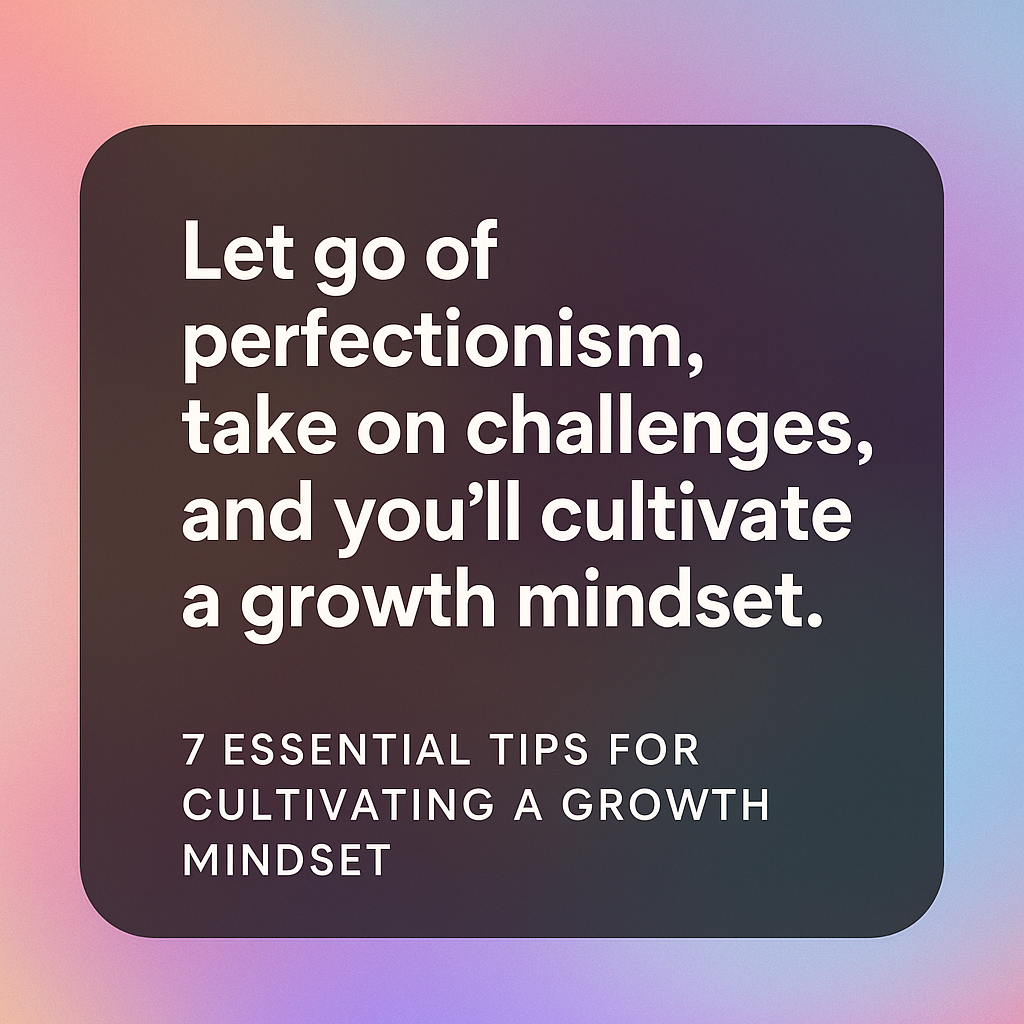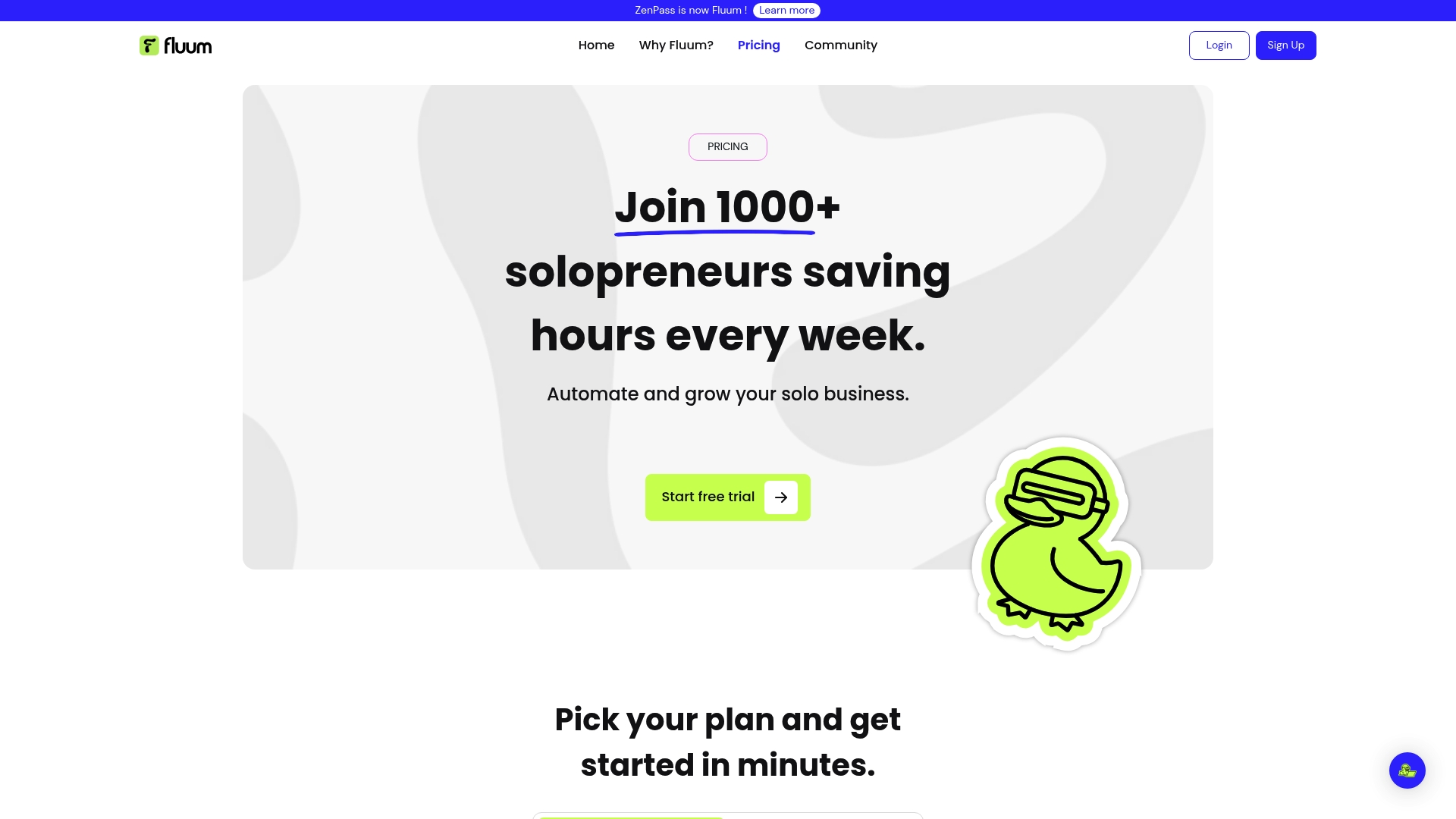
Adopting a growth mindset is not just about positive thinking. Studies show that neural plasticity lets our brains rewire and adapt more than we ever believed possible. Most people assume you are either born smart or you are not. Turns out you can actually grow your intelligence—if you treat every mistake and challenge as fuel for learning. What comes next will change the way you see setbacks forever.
Table of Contents
- Understand The Growth Mindset Concept
- Embrace Challenges For Growth
- Learn From Criticism And Feedback
- Celebrate Others’ Successes
- Set Specific, Achievable Goals
- Develop Resilience Through Failure
- Practice Lifelong Learning
Quick Summary
| Takeaway | Explanation |
|---|---|
| Embrace failures as learning opportunities | Transform setbacks into valuable insights for future improvement and resilience. |
| View challenges as growth prospects | Recognize that difficulties are essential for personal development and skill enhancement. |
| Seek and learn from constructive feedback | Approach criticism with curiosity to identify areas for improvement and foster growth. |
| Celebrate others’ successes genuinely | Acknowledge peer achievements to cultivate collaboration and inspire personal motivation. |
| Set specific and achievable goals | Establish clear, measurable objectives to guide your growth and maintain motivation over time. |
1: Understand the Growth Mindset Concept
Cultivating a growth mindset represents a transformative approach to both personal and professional development. At its core, cultivating a growth mindset challenges traditional beliefs about intelligence and capability. Unlike a fixed mindset that views abilities as static, a growth mindset embraces the potential for continuous learning, adaptability, and ongoing improvement.
According to research from the American Psychological Association, the growth mindset is fundamentally about believing that intelligence and talents are not predetermined but can be developed through dedicated effort, strategic learning, and persistent practice. This perspective shifts how individuals perceive challenges, setbacks, and personal potential.
Key characteristics of a growth mindset include:
- Viewing challenges as opportunities for learning
- Embracing effort as a pathway to mastery
- Accepting and learning from constructive criticism
- Finding inspiration in others’ success rather than feeling threatened
People who focus on cultivating a growth mindset understand that skills are not innate talents but capabilities that can be developed. They recognize that neural plasticity allows our brains to form new connections and adapt throughout life. This perspective empowers individuals to approach difficulties with curiosity and resilience, seeing obstacles as opportunities for cultivating a growth mindset rather than barriers.
The psychological impact of adopting a growth mindset is profound. By reframing personal limitations as temporary conditions that can be improved, individuals unlock greater motivation, creativity, and potential. This mindset encourages continuous learning, experimentation, and a more positive relationship with personal development.
Transitioning from a fixed to a growth mindset requires intentional practice and self awareness. It means consciously challenging internal narratives that limit potential and replacing them with beliefs that support ongoing personal evolution.
2: Embrace Challenges for Growth
Cultivating a growth mindset requires reshaping how we perceive and interact with challenges. Rather than viewing difficulties as threatening or impossible, individuals committed to cultivating a growth mindset see challenges as essential opportunities for learning and personal development.
Research from the University of Massachusetts Amherst highlights that viewing challenges as opportunities is fundamental to developing a robust growth mindset. This perspective shifts our psychological approach from avoidance to engagement.
Strategies for effectively embracing challenges include:
- Reframing obstacles as learning experiences
- Maintaining curiosity about potential solutions
- Developing resilience through consistent practice
- Accepting that initial failure is part of the learning process
When confronting challenges, successful growth mindset practitioners understand that discomfort is not a signal to retreat but an invitation to expand personal capabilities. The most significant growth often happens outside our comfort zones. This means deliberately seeking experiences that push personal boundaries and challenge existing skills.
Psychologically, embracing challenges requires cultivating a growth mindset supported by internal narratives that promote learning and improvement. This means replacing self-defeating thoughts like “I can’t do this” with constructive statements such as “I haven’t figured this out yet, but I will.” Through this reframing, individuals committed to cultivating a growth mindset transform obstacles from barriers into exciting opportunities for skill development.
Additionally, individuals committed to a growth mindset recognize that progress is rarely linear. Setbacks and struggles are not indicators of inherent limitation but valuable feedback mechanisms that provide insights into areas requiring additional focus and practice. By maintaining a curious and open approach, challenges become stepping stones rather than stumbling blocks in personal and professional growth.
3: Learn from Criticism and Feedback
Turning criticism from a threat into a learning opportunity is a cornerstone of cultivating a growth mindset. Rather than seeing feedback as a personal attack, individuals committed to cultivating a growth mindset interpret constructive criticism as a roadmap for growth and continuous improvement.
According to the American Psychological Association, individuals with growth mindsets approach feedback with curiosity and openness, understanding that external perspectives offer critical insights into personal and professional capabilities.
Effective strategies for learning from criticism include:
- Listening without becoming defensive
- Asking clarifying questions to understand feedback deeply
- Separating personal worth from performance critique
- Identifying specific actionable improvements
People with a growth mindset recognize that feedback is not a judgment of inherent value but a tool for enhancement. They understand that everyone has blind spots, and external perspectives can illuminate areas for potential growth that might otherwise remain unnoticed.
The psychological benefits of cultivating a growth mindset extend far beyond immediate skill improvement. By consistently practicing feedback receptivity, individuals dedicated to cultivating a growth mindset build emotional resilience, self-awareness, and adaptability. This perspective turns uncomfortable conversations into opportunities for meaningful personal development.
Criticism becomes most powerful when received with a genuine commitment to understanding and implementing suggested improvements. This means moving beyond initial emotional reactions and analyzing feedback objectively. Successful growth mindset practitioners ask themselves critical questions: What can I learn from this perspective? How might implementing this feedback enhance my skills or performance?
Ultimately, learning from criticism requires vulnerability, humility, and a genuine commitment to continuous improvement. It demands letting go of ego and embracing the understanding that personal growth is an ongoing journey of learning, adapting, and evolving.
4: Celebrate Others’ Successes
Celebrating others’ successes is a powerful shift in perspective that supports cultivating a growth mindset and moving from competition to collaboration. Individuals committed to cultivating a growth mindset recognize that someone else’s achievement does not reduce their own potential but instead offers inspiration and insight into what is possible.
According to Stanford Graduate School of Education, embracing peers’ accomplishments promotes a collaborative learning environment that encourages collective growth and motivation.
Key approaches to genuinely celebrating others’ successes include:
- Offering sincere congratulations without hidden jealousy
- Asking curious questions about their journey
- Recognizing the effort behind their achievement
- Seeking lessons and inspiration from their experience
A growth mindset reframes success as an expansive concept where one person’s achievement does not come at another’s expense. When we view success as abundant and attainable, we transform competitive environments into supportive ecosystems. This perspective eliminates the scarcity mentality that breeds unnecessary rivalry and replaces it with a sense of shared potential.
Psychologically, celebrating others requires emotional intelligence and self awareness. It demands recognizing and managing internal reactions of envy or inadequacy. By consciously choosing to appreciate and learn from others’ accomplishments, individuals demonstrate remarkable emotional maturity and personal growth.
This approach goes beyond individual interactions. In both professional and personal contexts, those dedicated to cultivating a growth mindset celebrate others’ successes and build networks of mutual encouragement. They recognize that inspiration is contagious, and by cultivating a growth mindset, witnessing another person’s achievement becomes a source of motivation and a guide for personal growth.
Ultimately, celebrating others’ successes is an act of generosity that reflects inner confidence and a profound understanding that human potential is not a zero sum game. It represents a fundamental shift from competition to collaboration, from limitation to limitless possibility.
5: Set Specific, Achievable Goals
Goal setting is a critical strategy for cultivating a growth mindset, transforming abstract aspirations into concrete pathways for personal development. Unlike vague wishes, specific and achievable goals provide clear direction and measurable progress markers that fuel motivation and learning.
According to the American Psychological Association, effective goal setting is fundamental to maintaining a growth oriented perspective. The process involves creating objectives that are challenging yet realistic, designed to stretch personal capabilities without overwhelming potential.
Essential characteristics of growth mindset goals include:
- Being precisely defined with clear outcomes
- Having measurable progress indicators
- Allowing flexibility for adaptation
- Connecting to broader personal development objectives
Successful goal setting works best when larger objectives are broken into smaller, manageable steps that support cultivating a growth mindset. This method reduces overwhelm and creates consistent opportunities for progress and learning. Each small milestone reinforces the practice of cultivating a growth mindset, building confidence and proving that skills can be developed through effort and persistence.
Psychologically, specific goals act as powerful motivational tools. They transform abstract concepts of improvement into tangible action plans. By creating clear, achievable targets, individuals shift from passive contemplation to active pursuit of personal growth.
The growth mindset approach to goal setting emphasizes process over immediate outcome. This means valuing the learning journey, acknowledging incremental progress, and understanding that setbacks are not failures but valuable feedback mechanisms. Goals become dynamic frameworks for continuous improvement rather than rigid, inflexible destinations.
Ultimately, setting specific, achievable goals is about creating a personal roadmap that balances challenge with realistic progression. It represents a commitment to personal growth, a willingness to learn, and the courage to pursue meaningful development consistently and intentionally.
6: Develop Resilience through Failure
Failure is not a final destination but a critical learning opportunity within the growth mindset framework. Developing resilience means transforming setbacks from devastating experiences into powerful moments of personal development and strategic insight.
According to the University of St Andrews, resilience involves persistently moving forward through challenges, viewing each obstacle as a chance to learn and improve. You can learn more about reframing failure as feedback to deepen your understanding of this process.
Strategies for building resilience through failure include:
- Analyzing failures objectively without emotional judgment
- Identifying specific lessons from each setback
- Developing alternative approaches after experiencing challenges
- Maintaining a forward looking perspective
Resilience is not about avoiding failure but about developing the psychological flexibility to navigate and grow from challenging experiences. This approach requires a fundamental shift in perspective, seeing failures as data points that provide valuable information about potential improvements rather than personal shortcomings.
Psychologically, resilient individuals understand that failure is an inherent part of any meaningful pursuit. They recognize that progress is rarely linear and that setbacks are not indicators of inherent limitation but opportunities for recalibration and strategic adjustment.
The growth mindset perspective on failure emphasizes learning over performance. By detaching personal worth from temporary outcomes, individuals can maintain motivation and continue pursuing their goals with increased wisdom and adaptability. This approach transforms failure from a source of discouragement into a powerful catalyst for personal and professional growth.
Ultimately, developing resilience through failure requires courage, self compassion, and a commitment to continuous learning. It means embracing vulnerability, maintaining curiosity about personal limitations, and consistently choosing growth over comfort.
7: Practice Lifelong Learning
Lifelong learning represents the ultimate expression of a growth mindset, transforming education from a time limited experience into a continuous journey of personal and professional development. It is about maintaining curiosity, openness, and a persistent commitment to acquiring new skills, knowledge, and perspectives throughout one’s entire life.
According to Stanford University’s Teaching Commons, individuals who embrace lifelong learning become more resilient problem solvers, continuously expanding their capabilities and adapting to changing environments.
Strategies for practicing lifelong learning include:
- Dedicating consistent time to skill development
- Exploring diverse learning platforms and resources
- Challenging personal comfort zones regularly
- Maintaining intellectual curiosity across different domains
Lifelong learning transcends traditional academic boundaries, encompassing formal education, professional development, personal interests, and spontaneous learning opportunities. It involves actively seeking knowledge through multiple channels: online courses, workshops, reading, conversations, podcasts, and hands on experiences.
Psychologically, committed lifelong learners understand that knowledge is not a fixed destination but an ongoing exploration. They view each learning experience as an opportunity to enhance cognitive flexibility, challenge existing mental frameworks, and develop more nuanced understanding of the world.
The growth mindset approach to lifelong learning emphasizes the joy of discovery over perfection. It means embracing the beginner’s mindset, remaining humble about existing knowledge, and recognizing that every interaction can potentially offer profound insights. This perspective transforms learning from a potentially intimidating process into an exciting, continuous adventure of personal evolution.
Ultimately, practicing lifelong learning is about maintaining an open, adaptable approach to personal growth. It represents a profound commitment to intellectual and personal development, ensuring that one’s potential remains dynamic, expansive, and perpetually unfolding.
Below is a comprehensive table summarizing the key tips, benefits, and core practices for cultivating a growth mindset as covered throughout the article.
| Tip/Principle | Core Action/Strategy | Main Benefit/Outcome |
|---|---|---|
| Understand the Growth Mindset | Believe intelligence and skills can be developed, not fixed | Unlocks motivation, creativity, and potential |
| Embrace Challenges for Growth | See challenges as opportunities, reframe obstacles positively | Fosters resilience and expands capabilities |
| Learn from Criticism and Feedback | Approach feedback with openness and curiosity | Enables continuous improvement and emotional growth |
| Celebrate Others’ Successes | Congratulate and learn from peers’ achievements | Builds collaboration, motivation, and diminishes rivalry |
| Set Specific, Achievable Goals | Define clear, measurable, and flexible goals | Drives sustained progress and keeps motivation high |
| Develop Resilience through Failure | View setbacks as learning opportunities, detach worth from outcomes | Increases adaptability, grit, and long-term perseverance |
| Practice Lifelong Learning | Commit to ongoing skill-building and curiosity across all life areas | Ensures perpetual personal and professional development |
Transform Your Growth Mindset Into Business Success
You have learned the essentials of building a growth mindset: embracing challenges, learning from feedback, setting goals, and building resilience. The biggest hurdle for solopreneurs and freelancers is putting these lessons into action while juggling sales, client management, and business operations—often single-handedly. If you are striving for continuous learning and want to sidestep overwhelm, you deserve tools that match your ambition and free up your time.

Make your growth mindset real in your business. Fluum.ai acts as an AI-powered co-founder for solo providers, bringing together sales funnels, client management, payments, booking, marketing, and more in one place—no tech skills required. Whether you want to focus on achievable goals for your business or turn setbacks into scalable systems, discover our pricing and start your journey now. It is your chance to put the principles of lifelong learning, resilience, and goal setting from this article into practice with a single, easy-to-use solution. Take your next step and let Fluum.ai support your growth today.
Frequently Asked Questions
What is a growth mindset, and why is it important?
A growth mindset is the belief that abilities and intelligence can be developed through effort, learning, and persistence. It’s important because it encourages resilience, curiosity, and a love for learning, ultimately enhancing personal and professional growth.
How can I embrace challenges to foster a growth mindset?
Embracing challenges involves reframing obstacles as opportunities for learning, maintaining curiosity about potential solutions, and accepting that initial failure can be part of the learning process. This mindset allows for personal development outside comfort zones.
What strategies can help me learn from criticism and feedback?
To learn from criticism, practice listening without defensiveness, ask clarifying questions, separate your self-worth from performance feedback, and identify actionable improvements. This approach helps transform feedback into a valuable tool for growth.
How can I incorporate lifelong learning into my daily routine?
Incorporate lifelong learning by dedicating consistent time to skill development, exploring diverse learning platforms, challenging your comfort zones, and maintaining intellectual curiosity across various subjects. This commitment ensures continuous personal and professional development.


